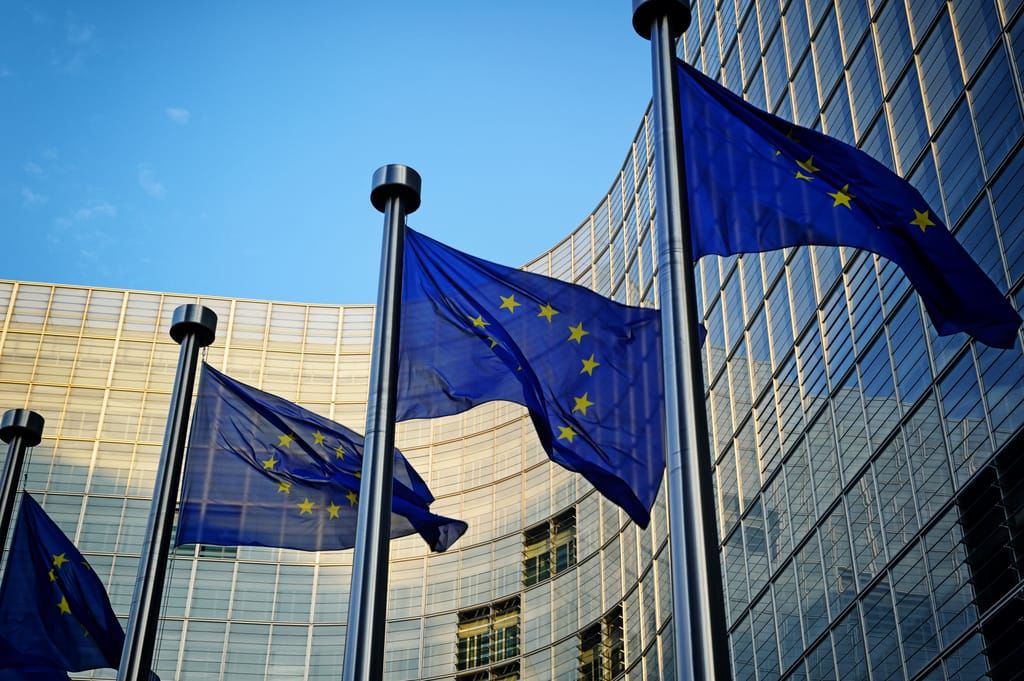An EU raise is meant to compensate for COVID-era salary sacrifices and runaway inflation. But it comes as Belgians protest their own financial woes.
The strikers who snarled Belgian trains, rallied outside energy giant Engie and slowed activities at police stations and hospitals aren’t the only ones waging a jaw-clenching salary battle this week.
Hidden nearby in the Brussels bubble, EU negotiators are squabbling over their own pay raise.
Their starting points are, of course, not the same.
Many Belgians fear they won’t be able to cover their energy bills this winter. EU negotiators, meanwhile, are deliberating whether relatively high-paid officials should get a 7 percent inflation raise, whether the EU needs a larger budget and whether the European Parliament needs more people on top of its 8,000-plus staff.
For EU officials, at least, it seems like the answer could be yes — and finalized as soon as Friday.
To be fair, not everyone in the Brussels bubble is well off: Early-career EU salaries are not generous and EU workers face the same ballooning costs as everyone else. And legally, many Belgian workers — EU or not — are entitled to an inflation-linked pay raise each year.
Still, the dichotomy has drawn derision from those who perceive a double standard, especially as inflation flew past 12 percent in October, the highest rate since 1975. At the protest on Wednesday, several demonstrators grumbled when asked about the EU staff’s pay bump, known in Belgium as an “indexation.”
Joeri Crauwels, secretary of the Flemish policemen’s union, the ACV Politie, summed up the view: For those “who already earn a lot, they should probably put their indexation on pause,” he argued in French. Still, Crauwels said, “the indexation is for everyone.” What the unions have asked for is an extra bump this year for those struggling.
Ultimately, the side-by-side talks illustrate the awkward line EU workers have always straddled in their own Belgian home, living and working alongside other Belgians but under different rules. Most Belgians fork over half of their salary to the government. EU officials don’t pay income tax. Most Belgians got their COVID vaccines at public centers. EU institutions had a separate program. The list goes on …
The striking difference
The average salary in Belgium is around €3,800 a month, before taxes. And, at 52.6 percent, Belgium has the highest income tax in the developed world.
Meanwhile, EU salaries range from around €2,000 a month to a “basic salary” for top officials that runs from roughly €19,500 to almost €22,000 each month (plus allowances). Without having to pay Belgian income tax, much of that pay goes straight into the bank account — although officials are quick to note they do pay between 15 percent and 20 percent on other taxes, and contribute 10 percent toward pensions.
 In the Brussels bubble, EU negotiators are fighting over their own pay raise
In the Brussels bubble, EU negotiators are fighting over their own pay raise
Diplomats and officials explained that the nearly 7 percent rise for this year is the combination of several exceptional factors.
First, there’s an automatic inflation adjustment of 4.4 percent for the period between July 2021 and July 2022, meant to cover what the EU estimates as the lost “purchasing power” of salaries. Then there’s an additional 2.5 percent on top of that to compensate for a canceled automatic raise during the COVID pandemic.
EU staff rejected accusations that the calculus is unfair.
“The method is not an automatic indexation based on inflation as it exists in Belgium,” said Cristiano Sebastiani, the president of Renouveau & Démocratie, one of the largest unions representing EU civil servants. “The method is simply an adjustment to the evolution of national civil servants’ purchasing power at the central level.”
The European Commission, the EU’s executive, also noted that even if EU workers get the 7 percent bump, they will still have lost nearly 12 percent of their overall “purchasing power” since 2004.
And that comes on the back of a period that has seen the EU simultaneously cut costs while unexpectedly expanding its mandate, from Brexit to COVID vaccines to a gas crisis.
“This double challenge (doing more with less) has come at a cost for staff,” the Commission told POLITICO in a statement. “Despite big savings, EU institutions are losing their attractiveness as an employer, which is shown by decreasing applications for EU jobs in a number of Member States.”
The landing zone
Diplomats warned that any change to the expected pay raise, if not executed properly, could trigger lawsuits. The majority of Commission staff are, after all, lawyers.
A worst-case scenario? An EU staff strike, gifting Brussels-bashers everywhere with images of a generally suit-clad crowd protesting over money.
One possible solution on the table, several diplomats said, is to approve this year’s raise, but then ask the Commission to propose a legal basis for avoiding automatic increases in the future.
The European Parliament is different, however. The EU’s legislature has already faced censure from within the EU’s own ranks over its spending requests, making negotiations even tenser.
 The Parliament has asked for 52 new posts and 116 additional parliamentary assistants
The Parliament has asked for 52 new posts and 116 additional parliamentary assistants
In June, the Council of the EU, composed of representatives from EU countries who craft the bloc’s legislation, chided Parliament after it asked for extra money and dozens of new staffers. Scores of diplomats lamented that Parliament had failed to read the moment, with economic growth slowing and prices accelerating.
The gap between the two sides is wide. The Commission and Parliament are backing a budget that would grow the EU’s budget by over €1.6 billion, arguing the money is needed for the energy crisis, to help Ukraine and to fund Europe’s green and digital transitions. The Council balked at the suggestion, calling for a more “prudent approach.”
The Parliament has also asked for 52 new posts and 116 additional parliamentary assistants.
One Parliament official rejected accusations that the institution actually wants to spend more.
Parliament, he said, is returning €7 billion to EU countries out of a 2021 revenue surplus. Those savings, he noted, have automatically reduced countries’ contributions to the EU budget by four times what the Parliament is asking for in extra 2023 money.
Parliament officials have also argued the 52 new jobs are cybersecurity posts that can benefit all EU institutions. And, they note, the 116 parliamentary assistants don’t actually count as EU staff. Instead, these people will be employed by Parliament members, who will determine their pay scales.
Yet the Council remains skeptical.
“If we want more cybersecurity staff,” the diplomat quipped, “maybe we don’t want them in Parliament but in the Commission.”
And another diplomat noted the €7 billion in savings would be returned to countries automatically — regardless of what the Parliament did.
“This is like Parliament stealing your watch, putting it in nice wrapping paper, shoving it under the Christmas tree and demanding that you say thank you in front of the whole family," the diplomat said.















